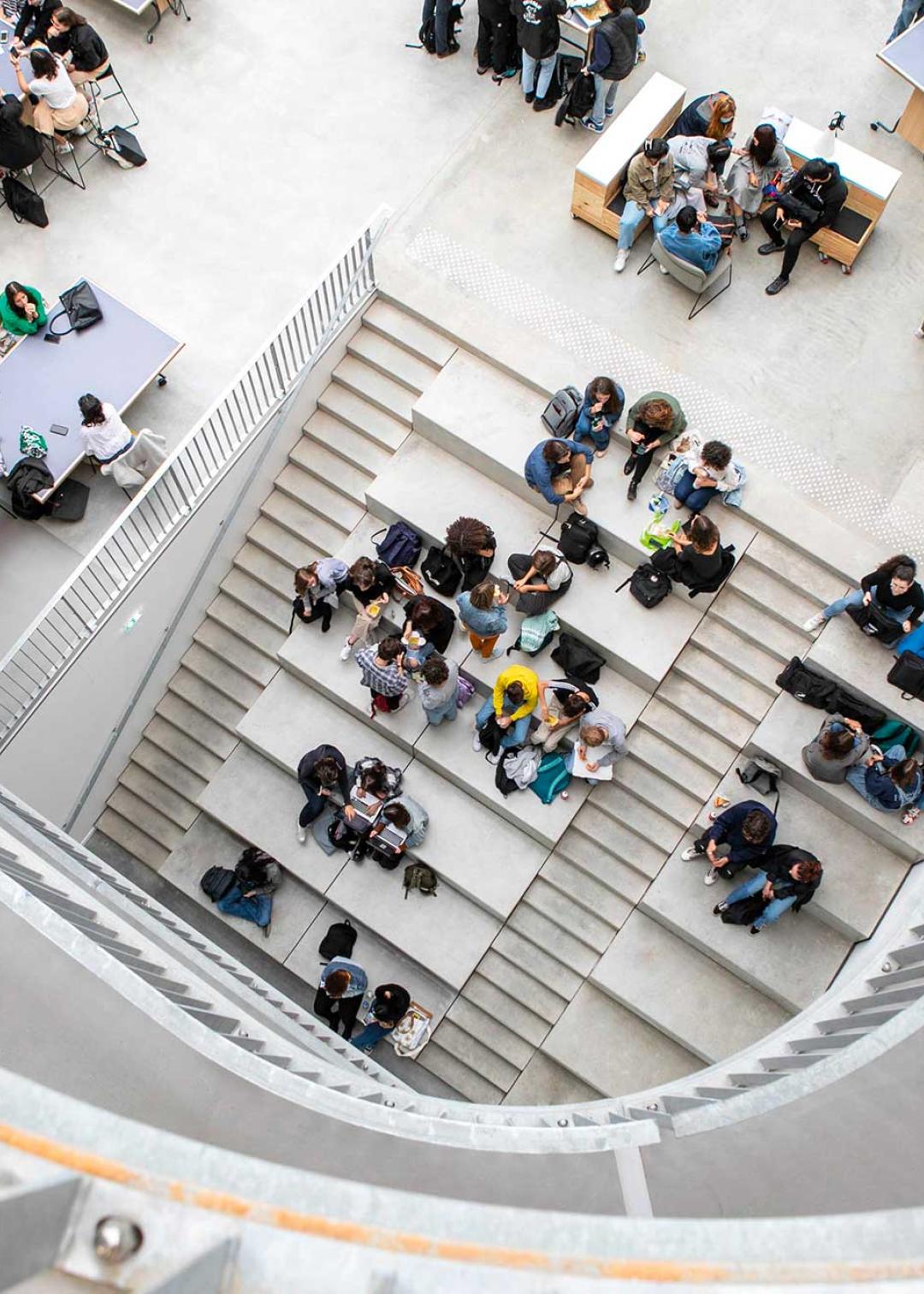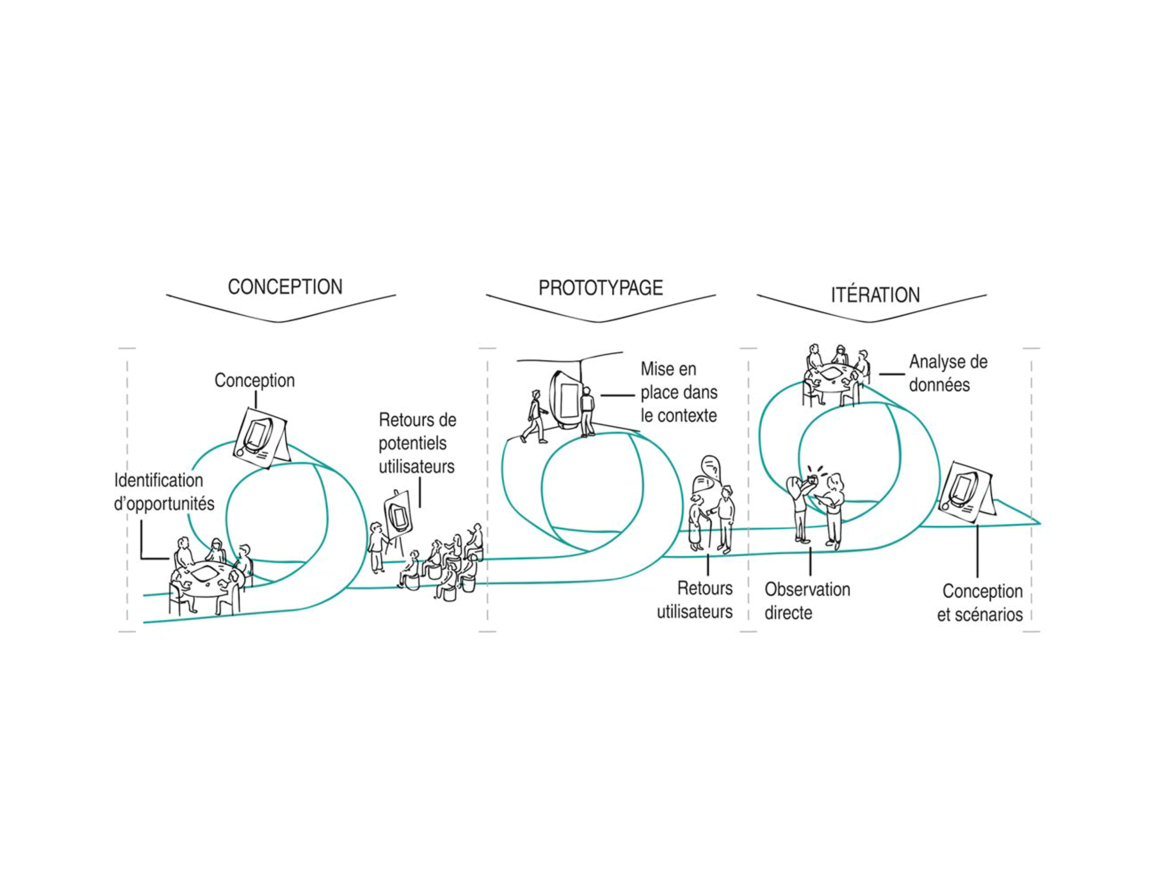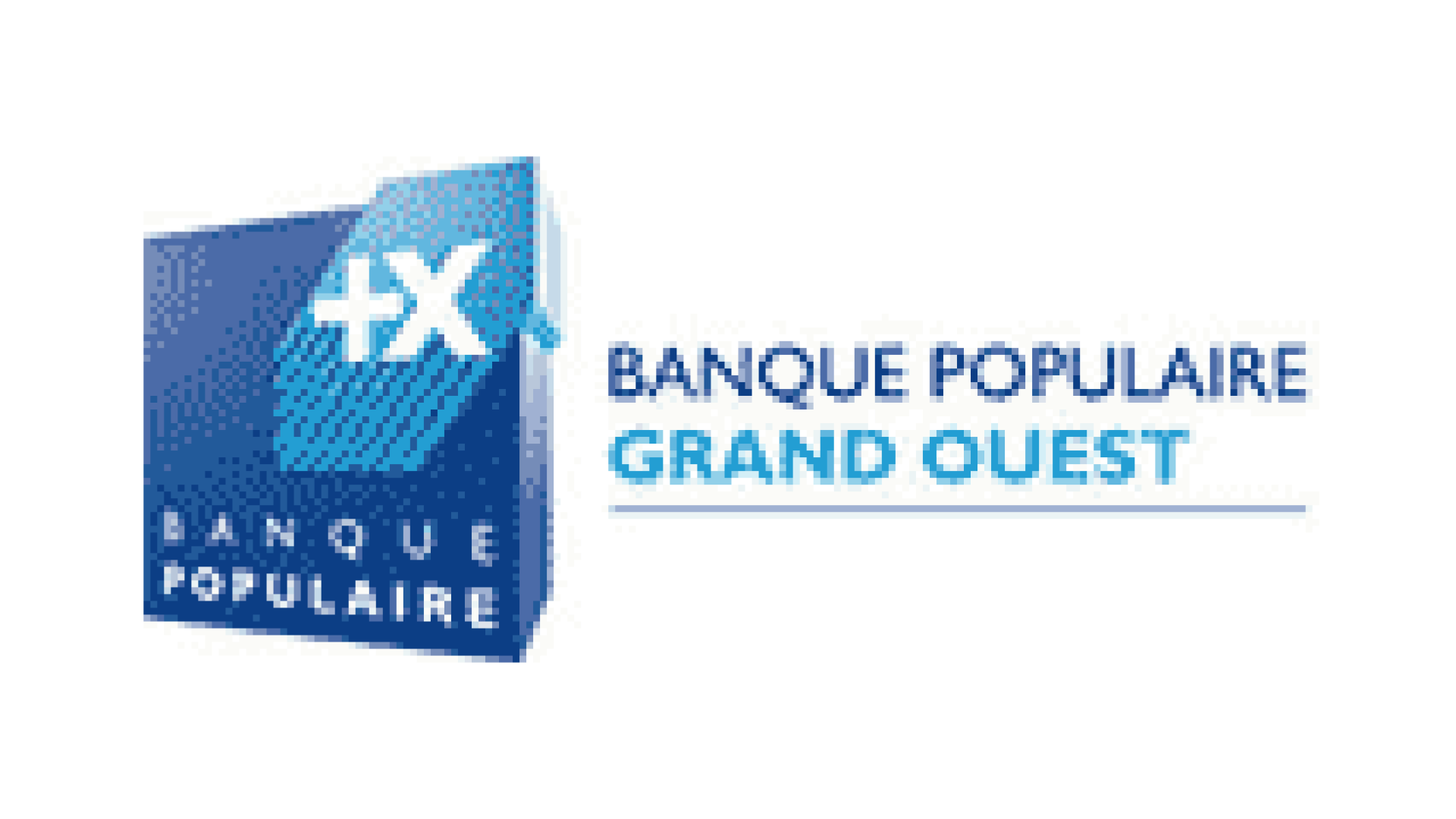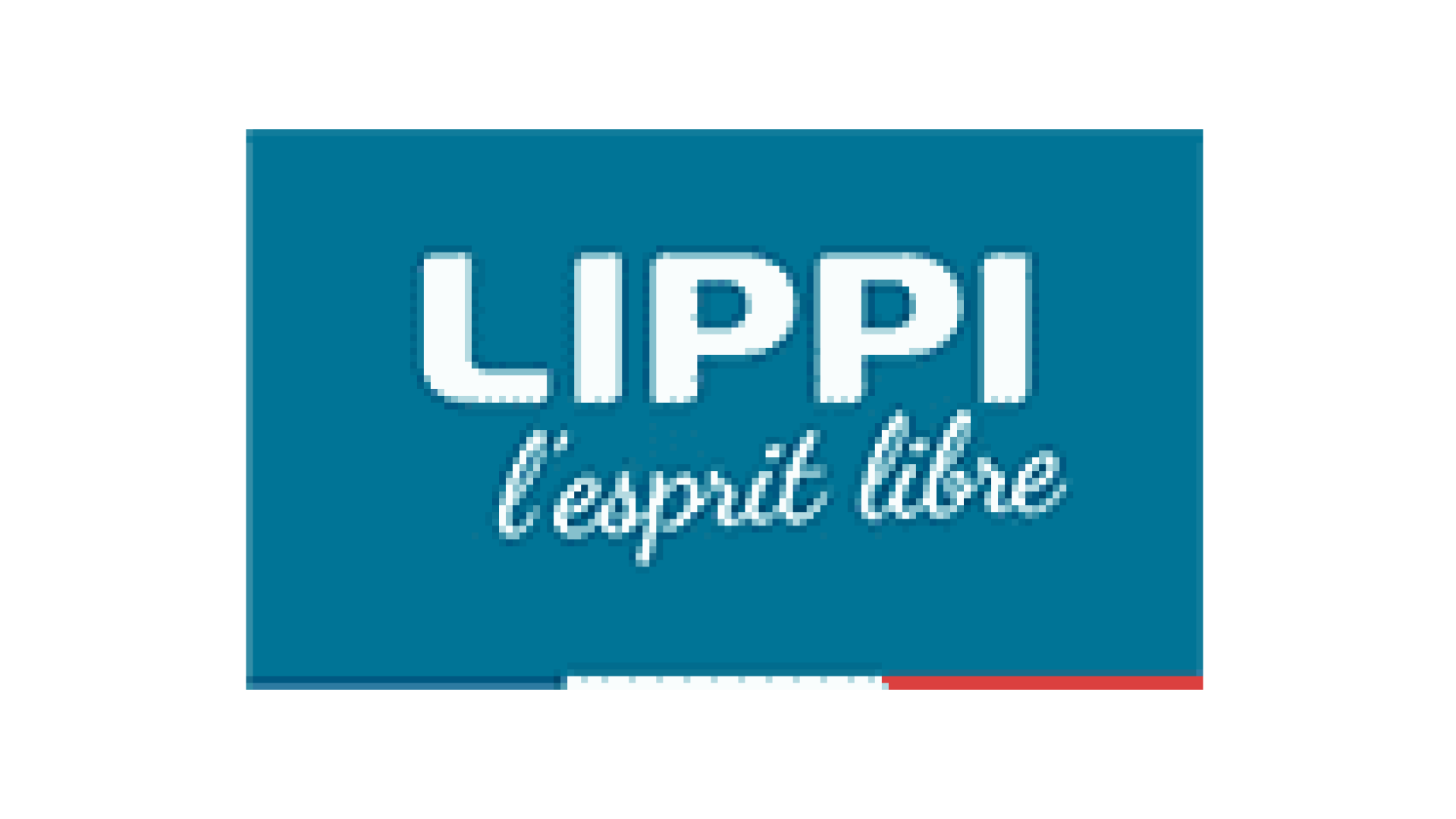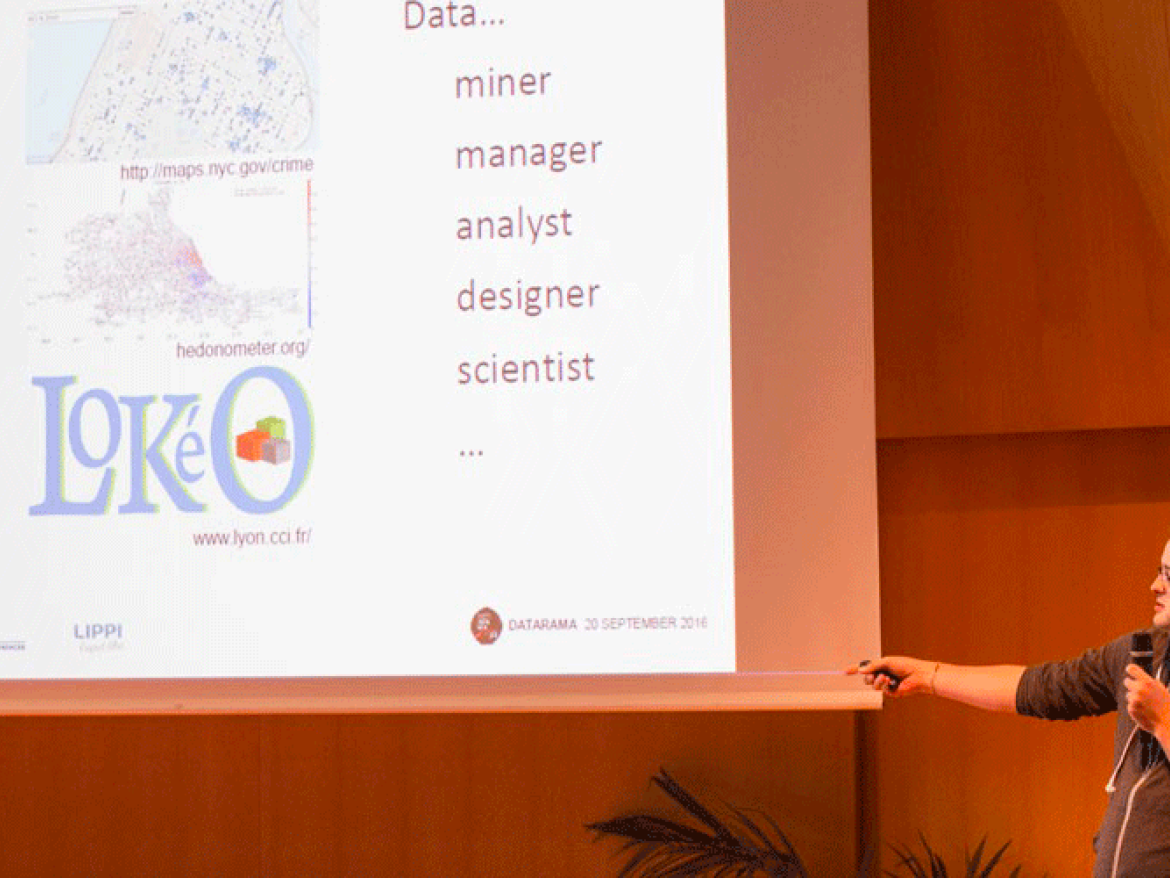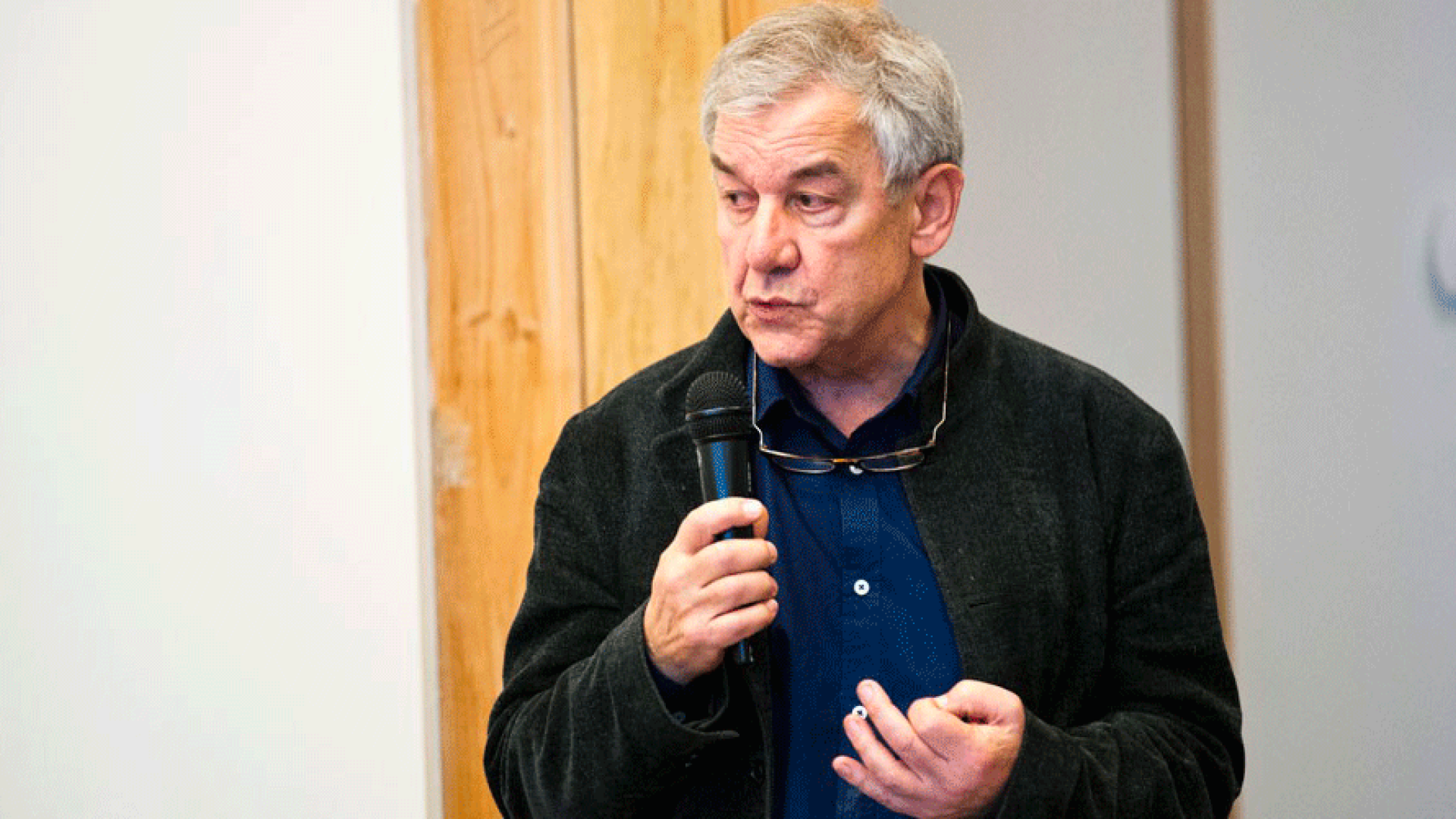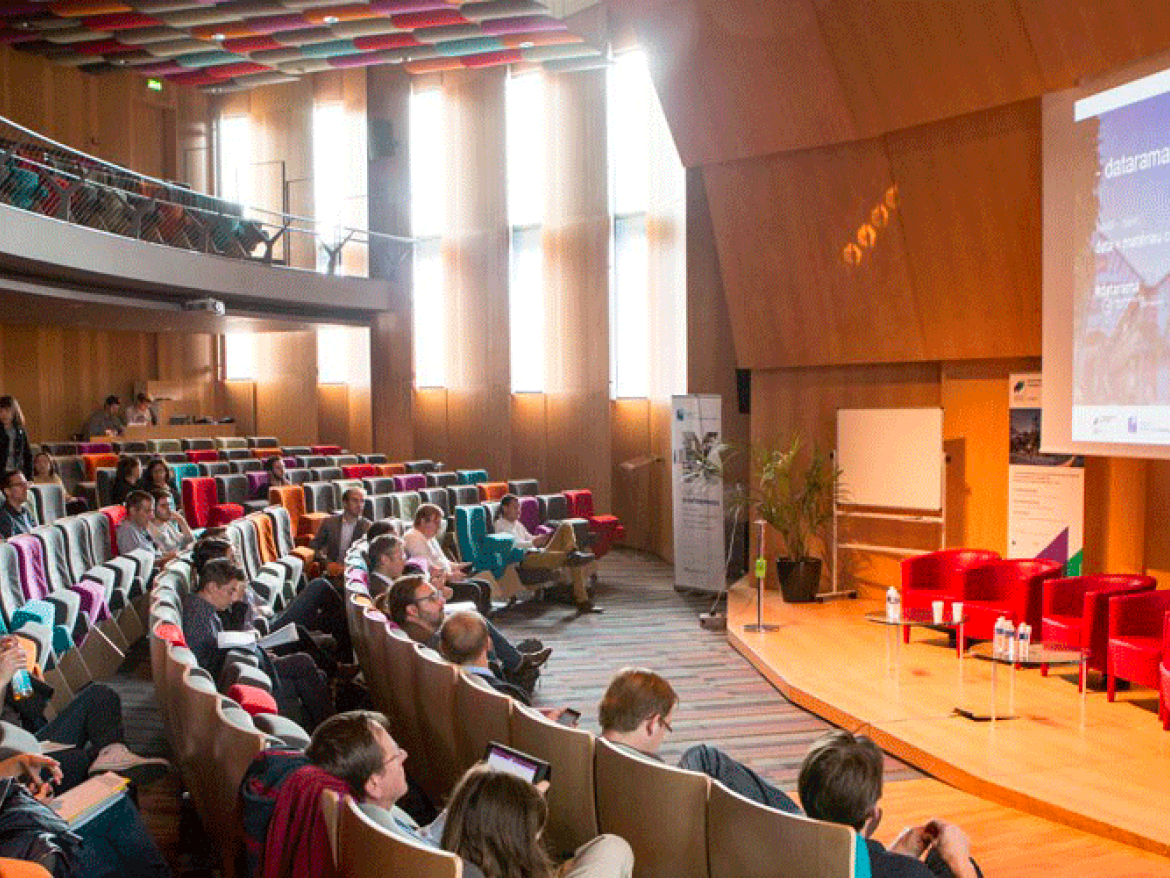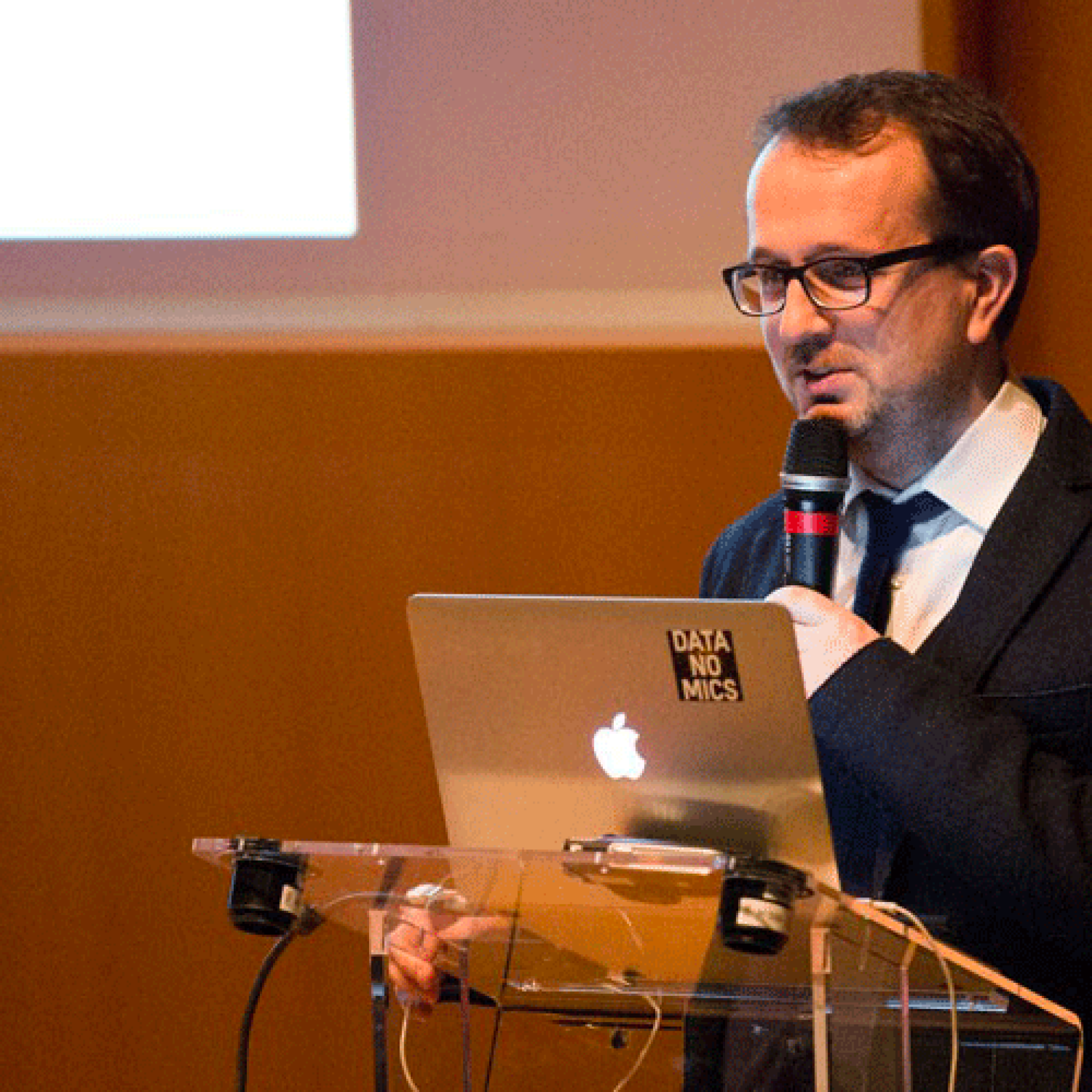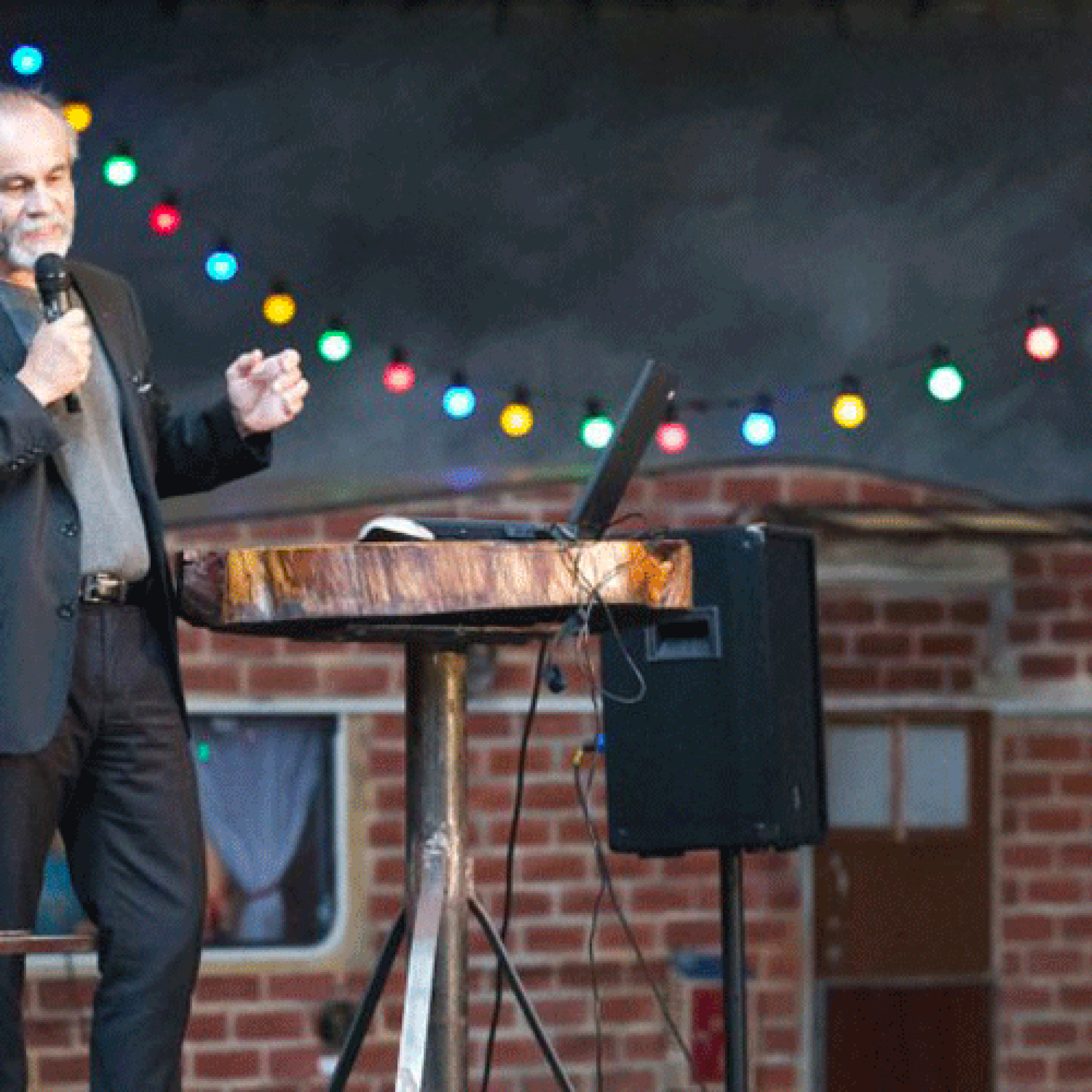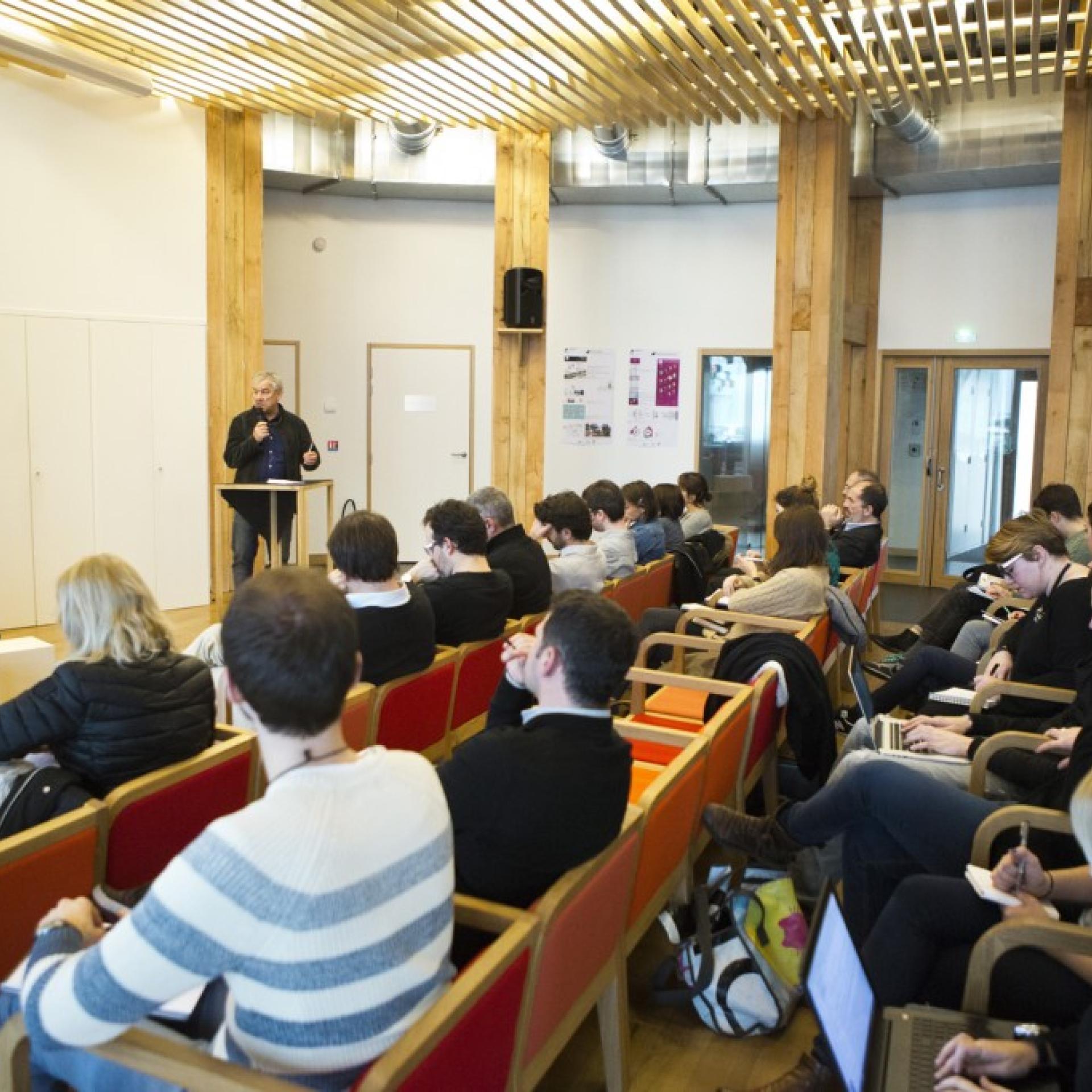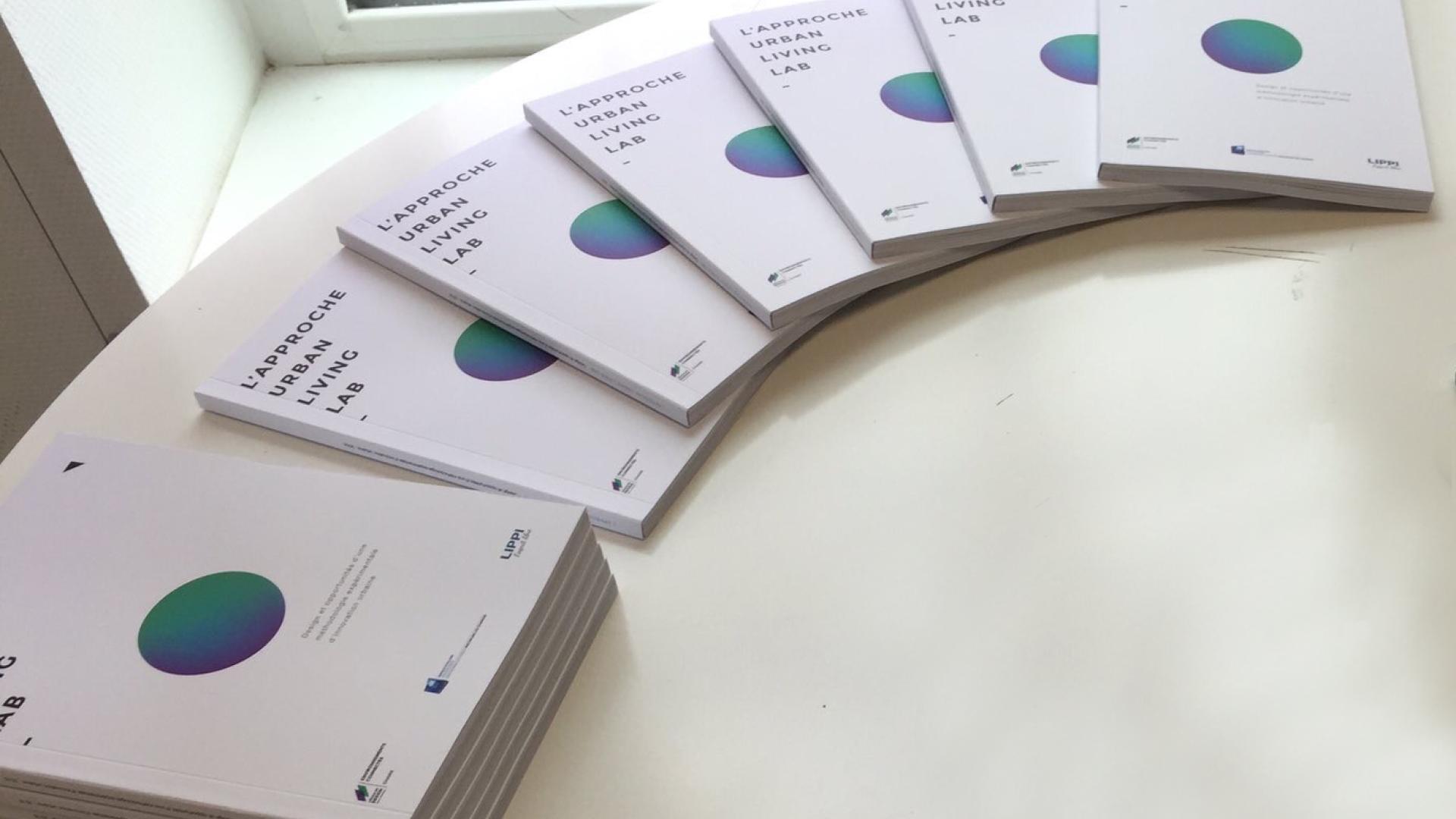
Connected Environments Chair
A research by design chair to explore the possibilities of Connected Environments
The research by design Connected Environments Chair, supported by Banque Populaire Grand Ouest and the LIPPI company between 2014 and 2018, aspired to put design at the heart of the new services to be implemented in the context of societal and technological changes to the city.
It is part of the current research and questions surrounding the “Smart City”.
Led by Florent Orsoni, the Chair combined the experiences of two laboratories: Digital Design Lab and City Design Lab.
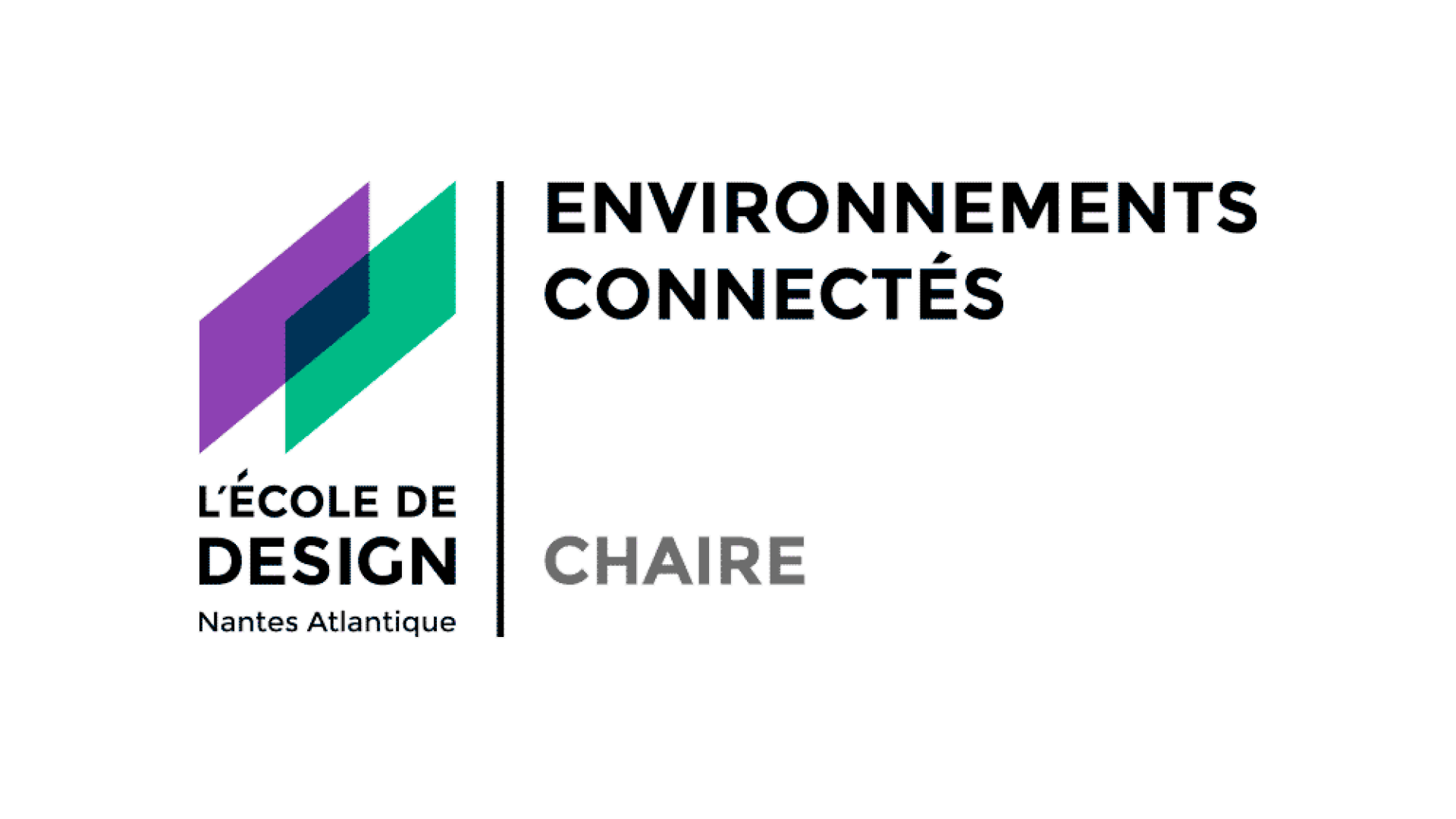
Research context
The term “connected environments” relates directly to sustainable city commitments and to the new challenges brought about by the development of internet technologies, particularly the question of data.
New potential for services, spaces and organizations is emerging in all manner of areas such as mobility, banking services, retail, security, etc.
What are the practical applications for citizens with a view to the common good?
From sensors to data processing, from data to services or to spatial organization, the chair seeks to test methods and tools, rethink user services and identify issues that will inform research and knowledge generation regarding our changing cities.
Service design research is structured around:
- representation to better understand information flows and the interactions between such flows (Open Data, Big Data, dataviz);
- citizen involvement in the joint construction of sustainable cities;
- designing services based on a better understanding of infrastructures such as public transport, green spaces or administrative and banking services (data-driven services);
- and more generally, resource saving (water, energy), to improve the management of the urban system inputs/outputs: pollution, waste treatment, etc.
The research takes place in interdisciplinary workshops which bring together students, companies, local authorities and institutions; in particular with the active support of SAMOA (Société d’Aménagement de la Métropole Ouest Atlantique), the company responsible for the Ile de Nantes urban development project, who provide testing grounds and encourage dynamic exchange between the various stakeholders, from experts and entrepreneurs to the users and inhabitants of a rapidly changing neighborhood.
Methods and tools
Monitoring activities are carried out as part of a “decoding” event involving experts, researchers, designers and company representatives who bring to the table their analysis, questions and involvement in all these subjects. All these contributions form the basis for a dedicated blog « Environnements connectés » (in French).
The methodological expertise associated with each of the Labs is tested and enhanced by experimenting on issues regarding data (recording, representation, determination of values), adapting existing services by contributing contextual data and designing new object-services. These experiments are subjected to various urban contexts and use contexts (re-definition, adaptation, space and service design). A blend of methods from design and anthropology disciplines also uses participatory tools involving users/inhabitants.
Highlights and actions
The experimentation Chair’s action programme is based on three highlights: questioning, prototyping/demonstrating and disseminating.
With a view to sharing and disseminating knowledge, each item that is worked on in the workshops will be presented to the general public. A dedicated Connected Environments blog in French documented highlights, actions, events and other activities of the Chair.
Two publications has been published as part of the disseminsation process of the chair:
- LE BŒUF, J., ORSONI, F. (dir), (2018). Du Design et des environnements connectés, Matières de recherche, Nantes : LÉcole de design Nantes Atlantique, 117 p., available online.
- ZARA, H. (dir), (2016), L’approche Urban Living Lab, design et opportunités d’une méthodologie expérimentale d’innovation urbaine, L’École de design Nantes Atlantique, imp. Couleur Fab. 102 p., available online.
Scientific council, team and partners
Direction
- Florent Orsoni, Chair director
- Grégoire Cliquet, Scientific director
Scientific Council
- Marie-Hélène Ferrer, PhD Psychology - Département Neurosciences et Contraintes opérationnelles - Institut de Recherche Biomédicale des Armées (IRBA)
- Hélène Dang Vu, Lecturer in urbanism - Institut de Géographie et d’Aménagement Régional of the University of Nantes, Researcher at ESO (Espaces and Societies), unité mixte de recherche du CNRS
- Tewfik Hammoudi, Lecturer at Ecoles Nationales Supérieures d’Architecture (ENSA Nantes), Founder of MorphoLab and of the architectural and urban project’s theory and practise teaching program « le même et l’autre »
- Jean-Louis Kerouanton, Science and Technology Historian, Vice President of the University of Nantes, François Viète Centre
- Fabien Pfaender, Lecturer and Researcher in Science data applied to the City, UTSEUS/ComplexCity Lab, Shanghai, Associate Professor, Data exploration &Visualisation Researcher, ComplexCity Lab Program, Smart City Sino-French Institute, UTSEUS (Chinese-European Technology University), Shanghai.
- Pierrick Thébault, Researcher and Designer specialized in IoT and data vizualisation, in charge of insight and new products at Qwant - PhD
- Monzen Tzen, Sino-European University in Shanghai (UTSEUS), Director of the ComplexCity Lab, Smart City Franco-China Institute
Internal members: - Zélia Darnault, Editorial officer
- Jocelyne Le Boeuf, Research and Promotion Director - Design Labs
- Cédric Mivielle, PhD Telecom Paris - Thesis subject: Attention, Creation, Thinking: the playful experience of ubiquitous computing - Associate Researcher at the Banque Populaire Atlantique - LIPPI Connected Environments chair
- Florent Orsoni, Sustainable Cities Design Lab Director and the Banque Populaire Atlantique - LIPPI Connected Environments chair Director
- Zélia Darnault, chargée d’édition
- Jocelyne Le Boeuf, directrice Recherche et Valorisation - Design Labs
- Cédric Mivielle, doctorant Telecom Paris - Sujet de thèse : Attention, Création, Thinking : the playful experience of ubiquitous computing
- Florent Orsoni, directeur City Design Lab et directeur de la chaire Environnements connectés Banque Populaire Atlantique - LIPPI
- Hilda Zara, psychologue sociale, PhD en "sustainability studies", chargée de recherches
Management and administrative team:
- Delphine Carton, assistant
- Grégoire Cliquet, READi Design Lab Director
- Zélia Darnault, editorial content
- Jocelyne Le Bœuf, research
- Quentin Le Roux, interaction designer
- Florent Orsoni, Sustainable Cities Design Lab Director
- Hilda Zara, environnmental psychologist and research
According to the needs, the Chair calls on multidisciplinary teams: design professions (product, space, interactivity, graphics), human sciences and technical and managerial skills.
Sponsoring partners
Banque Populaire Grand Ouest and LIPPI support the Connected Environments research through design Chair as part of their sponsorship policy. These two structures have understood the benefits of working with L’École de design Nantes Atlantique and thereby support research in a domain, the intelligent relationship between objects and environments that will change uses in the coming years and reveal new economic fields.
Technical partners
- ComplexCity Lab, UTSEUS, Shanghai
- XLII Factory
- SAMOA Société d’aménagement de la métropole Ouest Atlantique
- Mat’lo
- Aire38/Les badauds associés, Nantes
Publications and public events
With a view to sharing and disseminating knowledge, each element worked on during the workshops is the subject of a public presentation or a publication:
- Closing conference “Confiance ou Défiance numérique : approches, enjeux, débats, controverses autour des expérimentations urbaines”, February 6, 2018
Objectives: to take stock of the issues of delimitations private life, public life, around data and urban experimentation, especially around the issue of the "citizen", the "user", the "contributor" / "provider" of data. - Datarama #2, September 20, 2017, Saint Herblain
Objectives: presentations and exchanges around the practice of dataviz, on the theme "Data and ethics".
Partners: Audencia Sciencescom, LS2N/Université de Nantes, Ouest Média Lab, Banque Populaire Grand Ouest
- Villes et territoires intelligents : la smart city et … nous ?, 14 June 2017, La Roche sur Yon
- Objective: to participate in the round table "The place and role of the user in the development of the Smart City? Reconciling perspectives".
- Inclusive design seminar, 20-23 February 2017, Ile de Nantes, Paris
Objective: to link the chair's research work with reflections on design for all with a view to setting up events and colloquia
Guests: Institute for human centered design (Boston) - Décryptage infos : DATACITES, 31 January 2017, Ile de Nantes
Objective: to set the terms of a debate on public data and privacy
Guests: Bruno Marzloff, Francky Trichet, Olivier Duhagon, Jean-Luc Charles
Partners: SAMOA, Chronos
- Participation in the "Labo des savoirs" program, the energy cost of the web, 11 January 2017, Radio PRUN’
Objective: to present the work & reflections of the connected environments chair - REVER(CITES), October 2016 - January 2017, Cité de l’architecture et du patrimoine, Paris
Objective: to present the chair's work on the issue of flexible spaces
Partners: Bouygues immobilier, Master’s in Towns and Territories (Université de Nantes and Ecole nationale supérieure d'architecture de Nantes) - DATARAMA, 20 September 2016, Saint-Herblain
Objective: discussions and exchanges on the visualization of information and opportunities
Partners: Banque Populaire Atlantique, Nantes Digital Week
Guests: Giorgia Lupi, Mathieu Gioani, Fabien Poulard, Sebastian Grauwin, Matthias Rischewski, Ian Ardouin Fumat
- DEMO DAY, 29 June 2016, Nantes
Objective: to present the work of the "mapped spaces" project in connection with the Ecole Supérieure d'Architecture de Nantes, and to propose workshops to reflect on sustainable cities and connected environments
Guests of honor: Ruedi Baur & Alain Renk - Innovative city, 13 June 2016, Nice
Objective: to present the work of La Centrale to the general public
Partner: Innovative city - Publication: Sciences du design n°3 Urbanités numériques, June 2016
Objective: Coordination of an issue of a scientific journal enabling a broad monitoring of the issue of digital urbanities - Publication: la démarche Urban Living Lab, June 2016
Objective: to transcribe the work carried out as part of the La Centrale project and to identify the first methodological elements - Apéripitch ville créative, durable et connectée, May 2016, Nantes
Objective: discussions between members of the creative community to define a SMART CITY in Nantes
Partner: SAMOA - Décryptage infos : Smart city, une chance pour l’automobile ?, 31 March 2016, Ile de Nantes
Objective: to explore the potential and new markets of mobility
Guest: Stéphane Shultz
Partner: ID4CAR - Human Life Design International Conference, March 2016
Objective: Presentation and discussion of the Chair's work - Décryptage info : Datanomics, 4 February 2016, Saint-Herblain
Objective: to explore Data from an economic perspective
Guest: Simon Chignard
Partner: Banque Populaire Atlantique
- Hackathon La Centrale, 9 - 25 November 2015, Île de Nantes
Objective: to question the way in which technology can create new spaces or services through three axes of reflection (information and signage, public lighting, separation of spaces) during the transformation of the Centrale des artisans coiffeurs
Partners: SAMOA, Stereolux - Décryptage info : Réinventer le droit à la ville au sein des Tiers Lieux. Une “utopie réalisable” ?, 19 November 2015, Île de Nantes
Objective: to question the notion of Third Places through case studies in Spain and France at the La Centrale Hackathon.
Guest: Raphaël Besson
Partners: SAMOA, Stereolux - Décryptage info : Smart grids : quelles solutions pour des économies d’énergie ?, 20 October 2015, Île de Nantes
Objective: to address one of the foundations of the smart city through a pilot experiment on energy and building savings: ISSYGRID.
Guests: Christelle Capdupuy, Julien Dossier, Olivier Sellès
Partners: GreenWeek, PRI Design’In - Ateliers de la Recherche en Design : Les enjeux de la numérisation en design, 22 October 2015, Montreal (Canada)
Objective: To present the TransPoz tool, intermediate representations to facilitate the scaling up of existing products - Conférence ouverte : Smart la Ville, 25 June 2015, Nantes
Objectives: to propose a cross-exploration of the realities and perspectives of smart cities in general and those of the Nantes agglomeration in particular, to review the chair's first year of activity
Guests: Carlos Moreno, Emile Hooge, Santa Orsini, Francky Trichet
Partner: Aire 38
- Demonstrator, June 2014, Nantes
Objective: to question methodologies related to data collection, information processing and service definition
Partners: Aire 38 - Décryptage info : Smart city, un nouveau design urbain, 13 January 2015, Nantes
Objective: to discuss the main themes of connected environments and their impact on the organization of work and the city
Guest: Bruno Marzloff - Joint workshops: from data to service, September - October 2014, Shanghai, Nantes
Objective(s): to define methodologies for combining services, urban scenarios and data collection, and question the tools for representing complex data
Technical partners: UTSEUS, laboratoire Complexity - Preparatory workshop for the Chair: Sense in the city, March - June 2014, Ile de Nantes
Objective: to define the process and design issues around smart cities: from sensors to data, from representation to space design
Technical partners: Nantes Métropole, Samoa. - Presentation(s): inauguration of the chair (23/06/14) in the connected cities conference, a new challenge for the actors of sustainable real estate and construction, as part of the IBE master's degree of the Ecole Nationale des Ponts et Chaussées (25/09/2014), Innovation Week organized to mark 50 years of friendship between France and China, in collaboration with UTSEUS, Shanghai, (27/10/2014)
